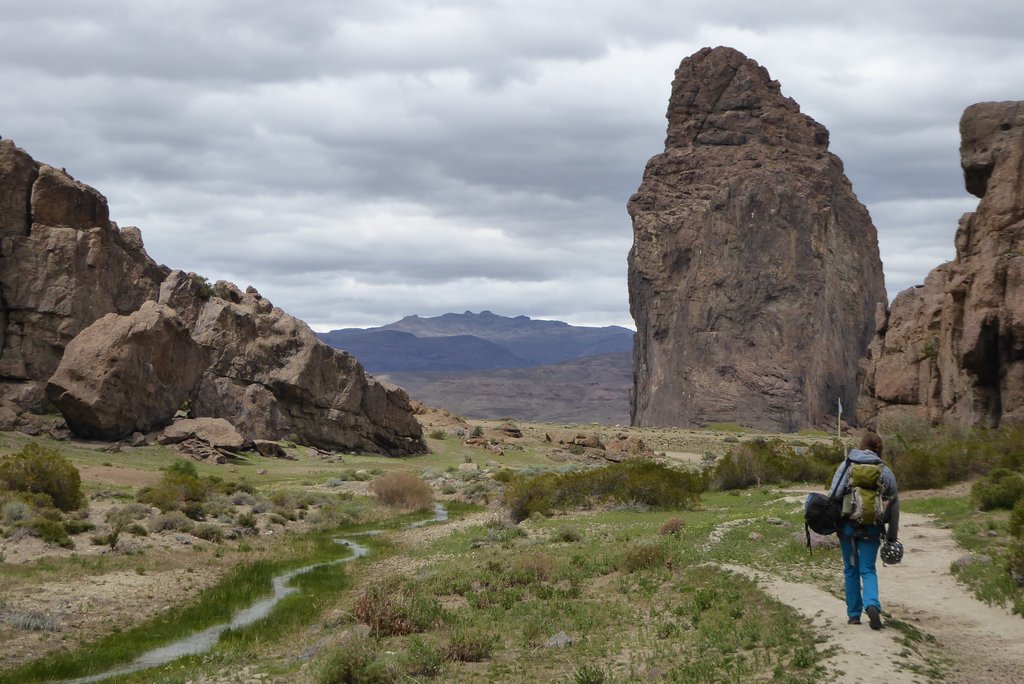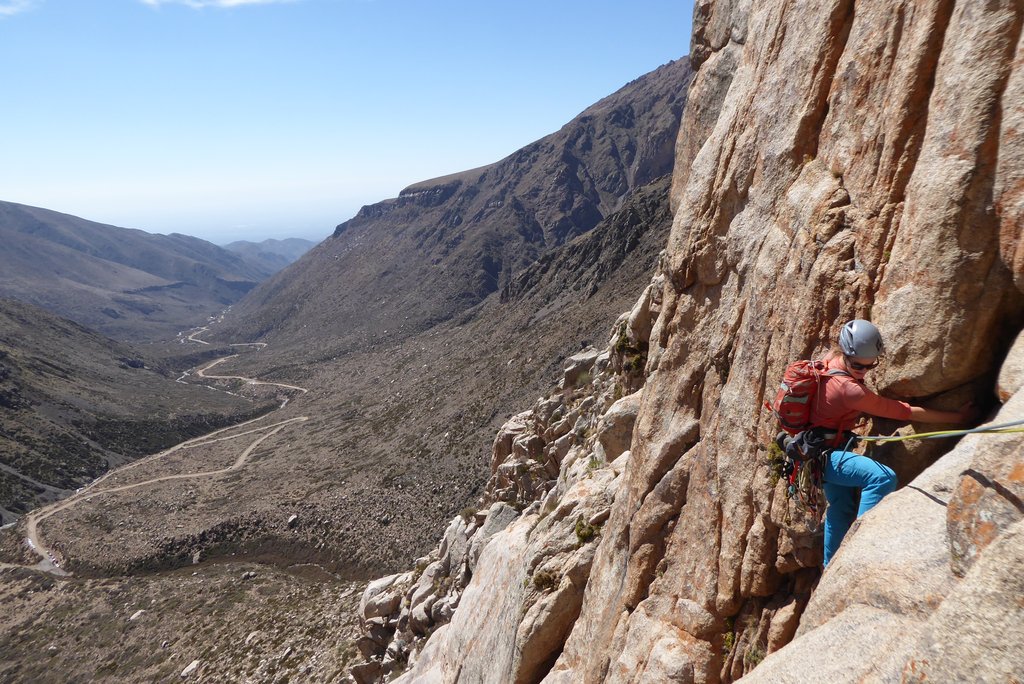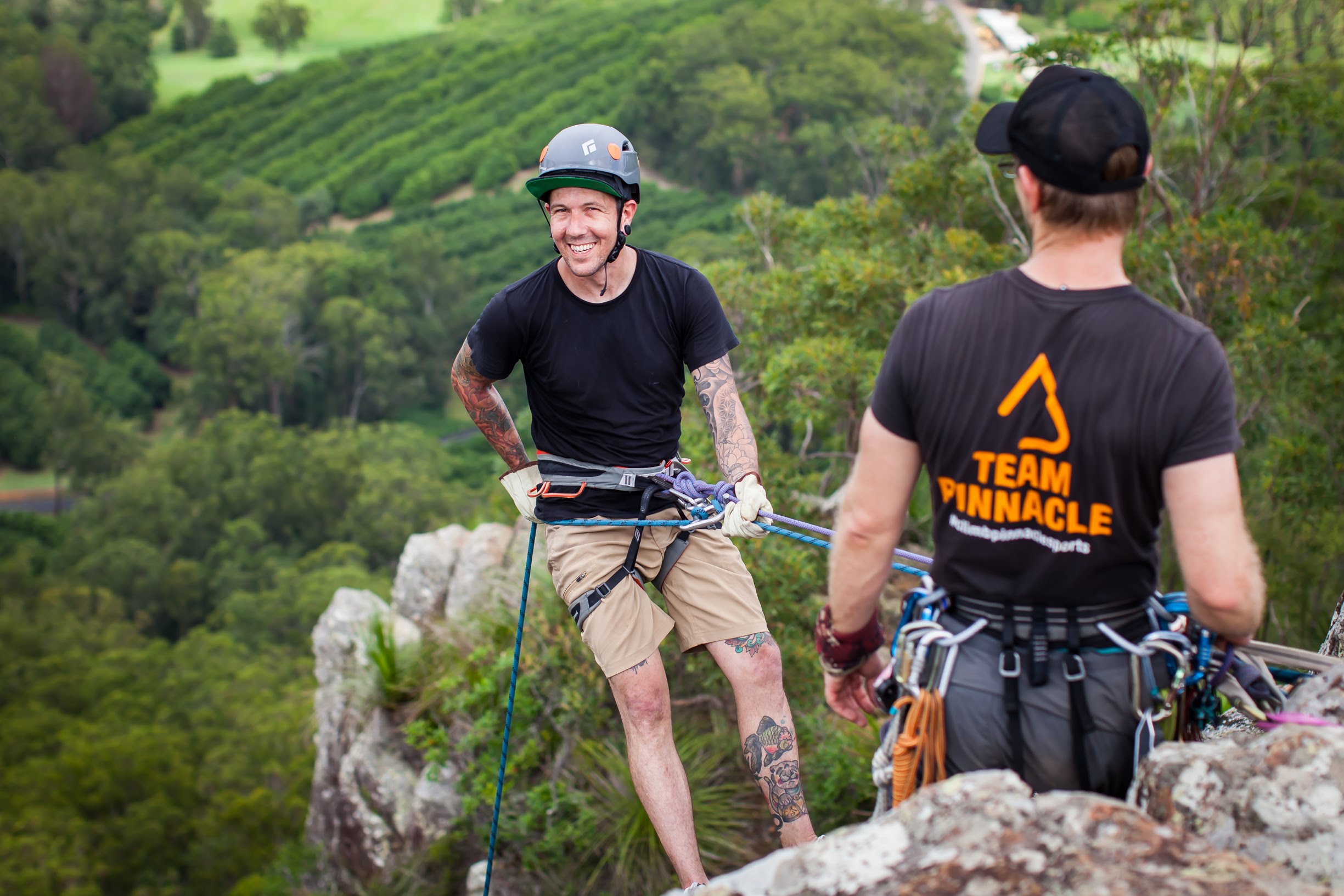Written by Pinnacle Ambassador Morag Stewart

“Are you getting excited about your holiday?”
This question was asked repeatedly by my co-workers in the weeks and months before I left my regular full-time job. “Errr, yes… no…. yes, yes, I think so”, I would respond with furrowed eyebrows but a wide smile. The reality of it was that I had a huge mix of emotions regarding the trip, because this was no ordinary holiday.
We’d been planning our trip for over two years, so there was no shortage of excitement to finally hit the road. Of course, a 12-month holiday has different challenges than a 12-day holiday, but this was part of the appeal. I knew I wouldn’t be happy with a “normal” holiday e.g. relaxing on the beach somewhere. I wanted an adventure, and that implies uncertainty, and with that come doubts and fears. Most of these fears were the typical types when visiting new countries, regardless of the time spent visiting, things like “What happens in an emergency?” and “How do I ask for help?” and “What if the beer is no good?”
But for me, a couple of my fears/emotions were definitely specific to long-term travel, very different from the usual sorts you’d expect on typical short-term relaxation holidays. While it’s healthy and normal to have different fears, and I am the type of person that is not particularly keen to discuss them publicly. That said, I think that many people let similar fears stop them from taking the trip they truly dream of. Maybe by discussing my fears and how I eventually dealt with them, I can help others who might be planning a long-term “holiday” but have some reservations…
Loss of identity
For most of my adult life, my career has been centred on environmental science and I would like to think that I’ve worked pretty hard for the cause over the last decade or so. While some of my dedication has stemmed from the societal expectation that we must be ‘career-orientated’, most of my dedication and hard work is genuine and self-fulfilling.
As such, a fear grew in me – What would happen when I abandoned this role? How would I explain what type of person I am? In our career-oriented society, it is hard enough to take time away off to have a family, let alone some sort of world adventure. This sense that I had lost my identity swelled in the first few months of the trip, and when combined with the other challenges of my adventure, it all got too much at one point. Around 4 months in, I had a very low period.
“I can’t explain it, I just feel so inadequate and out of place” I moaned to my partner.
Understandably, he didn’t really know what I was talking about. I had been struggling to grasp any Spanish, my climbing wasn’t progressing the way I’d envisaged, and not having my safety net of my job meant that I was feeling a bit lost. My partner, on the other hand, had a decent grasp of Spanish, was getting some good mileage with his climbing efforts and could channel his extra energy into writing about our adventures. He was thriving and seemed comfortable with the mix of challenges around us, which of course confused my emotions even more.
Eventually, I was able to process some of these emotions and realise that I had to change, or rather, that I had to better define my perspective, particularly in regard to the role my job plays in my life. I came to realise that no matter how much I loved or hated my job, it did not define who I was. Hypothetically, if I had lost my job, would I be a different person? I would definitely be upset (mainly because of the importance of the work), but I would still be the same environment and adventure driven person. My job is something I can apply my identity and aspirations to, not something that gives me these things. This realisation allowed me to dispel that “lost” emotion that ‘d been feeling, and start enjoying and working on the other challenges within the trip.

Too much time to think
Without a job to keep me occupied, I thought that I might have too much time to think, and that this would naturally lead to problems. In everyday life, most of us are ceaselessly busy and constantly overstimulated, which is why many of us need a couple of weeks of relaxing on the beach for a holiday.
Some may argue that this constant busyness is to distract ourselves from looking inwards too much (hello, wasting time on social media?), but rationale aside, there is no doubt that the human brain needs stimulation through problems and puzzles to stay nimble. There has also been a lot of research around the brain needing this stimulation to avoid mental health symptoms including depression and anxiety, and there is no doubt that regular work can provide that framework for people.
Whatever concern I had about this before my trip, it was definitely pushed aside once we actually got started. As mentioned above, I had no shortage of challenges surrounding me, but what was amazing is that these challenges were so simplistic compared to some of those in our city-living work lives. Travelling, climbing and trekking in South America demands good organisation of ones’ basic living requirements such as water for drinking and washing, food, climate and temperature considerations, as well as van fuel and distances/terrain between destinations.
Before the trip, I did wonder whether these challenges would be enough to entertain my brain. I can assure you that they did… so much so, in fact, that I didn't have the brain-space or time to follow some other creative ideas I had wanted to spend time exploring. Simplistic or complex, the importance of having daily stimulation and challenges to keep our mental health in check has definitely been affirmed this trip.
What are you worried about?
These were just two of my worries before embarking on long-term travel. Yours will probably be different. Even if they are the same, you will have a different way of working them out. Everyone has different ways to deal with their fear so I have not written about how I dealt with these in too much depth. However, I think it is important to encourage people to not let their fears stop them from following their adventure dreams. Know that you can and will deal with whatever comes at you.
After all, ‘A ship in the harbour is safe, but that’s not what ships are built for’ (William G. T. Shedd).
Written by Morag Stewart
Looking for more great reads? Subscribe to our newsletter to stay up to date with the latest climbing tech, crag recommendations and upcoming events.








